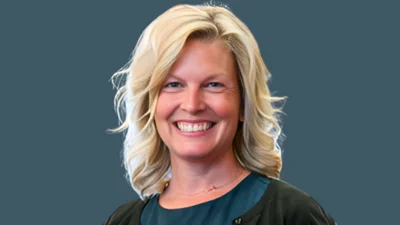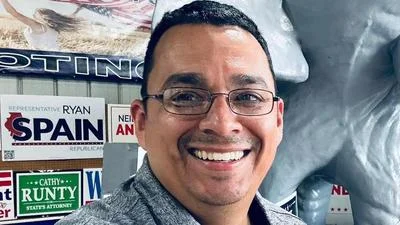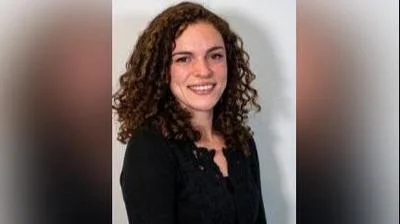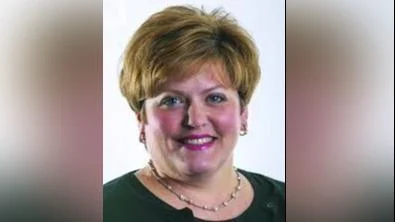American Legion issued the following announcement on Aug. 31.
Standards matter, and many of the speakers at The American Legion National Credentialing Summit on Aug. 28 and 29 reinforced that premise.
The summit’s opening keynote speaker, Lumina Foundation CEO Jamie Merisotis, said the differences between civilian credentials and military skills are a barrier.
“About 200,000 veterans enter the civilian workforce each year, and statistics show that only one in four have the credentials needed for the best jobs. Others are forced to retrain, requalify, or in the worst-case scenario, start over, because the civilian system doesn’t understand the military system. We don’t speak a common language when it comes to skills,” Merisotis said.
Kermit Kaleba, managing director for the National Skills Coalition, said during a panel on assessing the quality of credentials that his company is working with leaders in 12 states to come up with a consensus definition of a quality non-degreed credential.
“This is a really important topic for state leaders right now; there are a lot of state leaders who are starting to recognize the importance of setting credential attainment targets for their state and making sure that people have access to postsecondary education and training. But in many cases, they don’t have a clear consensus definition on what a quality non-degreed credential is,” Kaleba said.
According to Credential Engine, a nonprofit organization aiming to create a centralized credential registry, there are over 330,000 confirmed credentials in the United States alone. Speaking on the same panel with Kaleba Wednesday, Deborah Everhart, senior strategic advisor for Credential Engine, said there are so many “because of the economy and the way we work and the way our careers evolve has changed.”
“It’s really imperative that we insist on a transparent data infrastructure like the credential transparency description language that can help us understand those credentials and the competencies they represent, because then we’re going to be able to let new technologies do more of this work for us,” Everhart added.
It’s finding that common language that is imperative to fine-tuning the credentialing process, experts said.
“The system must measure skills not on the credit hour, on which much of our higher education system is based, but on proven competencies, a system where both learning and credentials are truly transparent,” Merisotis said.
Jason Tyszko, vice president of the U.S. Chamber of Commerce Foundation’s Center for Education and Workforce, said during a breakout session Wednesday afternoon that the business community has caught up to the information technology community in learning “that data standards matter.”
“What we’re hoping to do through this new data standard is essentially create the first ever organic labor market information system,” Tyszko said. “So we’ll be getting clearer, better, faster signals from employers about what they’re asking for in terms of what’s a required or preferred credential or skill on any given day of the week.
“So it’s not about saying, ‘well, we need to overly standardize and harmonize and simplify,’ it’s not aiming for lowest common denominator average fit, it’s getting better, more machine-readable language so you can actually ascertain for this given industry in this region for this company and this job, what are they asking for? How is it the same or different from a job being offered by a firm in the same region?”
This was the third credentialing summit hosted by The American Legion, after ones in 2012 and 2015, this one in conjunction with the 101st National Convention in Indianapolis. The event helps experts from the private and nonprofit sectors, the military and federal agencies to share best practices for credentialing and enhancing civilian career prospects for veterans, servicemembers and military spouses.
One of the challenges in converting military skills into civilian credential criteria is the number of different skills servicemembers learn during their time in the military.
“I think we’ve got to be careful not to pigeonhole people into just one individual career pathway and make sure that it’s open to them. And I think the transparency behind the competencies associated with the credential is going to start helping with that,” said Lisa Lutz, president of Solutions for Information Design.
‘It’s not that simple’
During Thursday’s opening keynote, Past National Commander Denise Rohan spoke about her initial experience as chairman of the Legion’s Veterans Employment and Education Commission, when then-staff member Steve Gonzalez was explaining the challenges with converting military training to civilian credentialing and licensing.
“I was like, certainly, if you drive a truck in the Army, you can drive a truck in civilian life. He said, it’s not that easy. And I said, well, what about nurses in the military? He said, it’s not that easy. … It should be that simple,” Rohan said.
But then she met a veteran from the Green Bay area, a former Army combat medic who decided to go to nursing school to become a trauma nurse.
“And as she went through the program, the community college she decided to start out at did not recognize her service at all,” Rohan said. “So here’s a woman who probably could have written a book about being a combat medic, and all the people she had helped save; she got into college and got no credit for what she had done. And she told me what had been the final straw for her was when they were teaching folks how to do IV’s, how to start an IV. And she, through her training, she started an IV and her professor or teacher said, ‘you can’t start an IV that way. If you’re in a trauma situation, you could never start an IV like that.’ She said, ‘I’ve kind of been in a trauma situation. I’ve been on the battlefield, and I’ve started IVs.’ ‘Well, that’s not the way that we do it in the civilian world.’”
That veteran decided to give up nursing, and lost her home and was on the verge of having her daughter taken away from her, Rohan said.
“She felt pretty hopeless, because here she was, she served her term in the military thinking America was going to take care of her. She was about to lose her daughter. Fortunately, as she was on the street trying to figure out what to do next, she came across an American Legion hall, and she went inside and they listened to her. And that is such a big part of being veterans and being part of a society that cares about its veterans, is actually listening. And as I listened to her story, thankfully they got her connected up with a homeless shelter where she was able to take her daughter. And some training. And now she’s living a very successful life, and she was able to get back into school and she was able to use some of the things she used in the military.
“But as she shared that story, I said, ‘wow, it’s not that simple,’” Rohan said.
New roundtable
During his keynote address, Merisotis announced that the Lumina Foundation, which is committed to expanding opportunities for post-high school learning, is partnering with the Legion to create a military credentialing advising roundtable.
That “will bring together credentialing experts from across a variety of post-high school stakeholder groups to provide strategic advice to the Department of Defense, to industry leaders, to institutions of higher learning, and to government agencies that support infrastructure changes, rooted in transparency, rooted in equity, and rooted in quality assurance for credential completion,” Merisotis said.
Original source can be found here.

Source: American Legion





 Alerts Sign-up
Alerts Sign-up